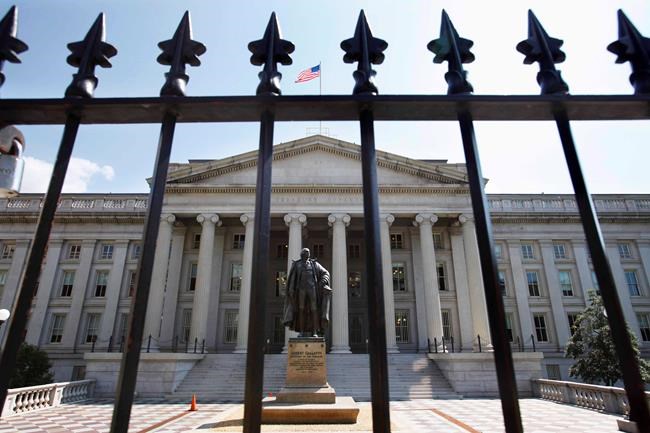
Correction: Budget Deficit story
WASHINGTON – In a story Aug. 10 about the U.S. budget deficit for July, The Associated Press reported erroneously the name of an organization that has analyzed the budget plans of Hillary Clinton and Donald Trump. The group is the Committee for a Responsible Federal Budget, not the Center for a Responsible Budget.
A corrected version of the story is below:
US registers $113 billion budget deficit in July
The federal government recorded the biggest monthly budget deficit since February last month
By PAUL WISEMAN
AP Economics Writer
The federal government last month recorded the biggest monthly budget deficit since February, and the deficit so far this budget year is running 10 per cent higher than a year ago.
The Treasury Department said Wednesday that the deficit came in at $112.8 billion in July, highest since February’s $192.6 billion but down from $149.2 billion in July 2015. For the first 10 months of the budget year, which ends Oct. 1, the deficit was $513.7 billion, up from $465.5 billion a year earlier.
The government runs a deficit when it spends more than it collects in taxes and other revenue.
So far this budget year, government revenues are flat from a year earlier but spending is up 2 per cent. Spending rose on interest payments and Medicaid, a health care program for the poor. Revenue from corporate taxes is down 12 per cent so far this year, reflecting a drop in business profits.
The Congressional Budget Office predicts the 2016 deficit will total $590 billion, up from last year’s budget gap of $439 billion, largely because of lower-than-expected revenues.
Accumulating budget deficits add to the federal debt, now nearly $19.4 trillion. That figure includes $5.4 trillion the government owes itself, mostly from borrowing from Social Security.
The Committee for a Responsible Federal Budget estimates that Hillary Clinton’s budget plans— including an expansion of the Affordable Care Act — would add $250 billion to the debt over a decade.
It is recalculating its assessment of Donald Trump’s tax and spending plans after the Republican presidential nominee offered a revamped economic plan this week. Trump’s earlier plan would have added $11.5 trillion to the debt over a decade, largely through massive tax cuts. The new plan, which scaled back the tax cuts, would add “significantly less” to the debt — though Trump’s plan to reduce business taxes alone would swell the debt by $2.55 trillion over 10 years, the group says.
Join the Conversation!
Want to share your thoughts, add context, or connect with others in your community? Create a free account to comment on stories, ask questions, and join meaningful discussions on our new site.












Leave a Reply
You must be logged in to post a comment.